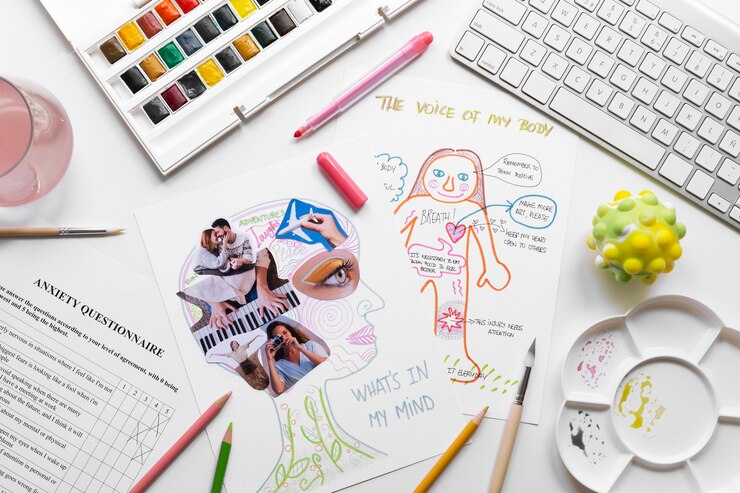
### Inside: Discover 3 Key Factors for Raising Emotionally Resilient Daughters
#### Table of Contents
Children receive confusing messages about emotions from a very early age:
– “Don’t cry!”
– “You’ll be fine.”
– “Don’t be such a drama queen.”
Our culture often struggles with allowing emotional expression. Feelings can be overwhelming, noisy, and sometimes difficult to handle. You only need to go as far as your local playground to notice how uncomfortable parents can become when a young child expresses strong emotions.
If you’re a young girl, chances are you’re caught in a whirlwind of mixed messages about emotions. Why focus on girls? Statistics tell us it’s important. Research shows that girls are more likely to experience anxiety and have twice the rate of depression during adolescence compared to boys. They also face complex social challenges.
Rachel Simmons, author of the bestselling book “The Curse of the Good Girl,” notes, “We’ve assumed that because girls feel deeply, they must be skilled at managing those feelings. If we believe myths about their emotional abilities, we overlook a huge gap in their development.”
Indeed, there’s a significant gap. Many girls struggle to identify and accept their emotions, often minimizing or dismissing them. Emotional intelligence, the ability to understand and manage feelings, strongly predicts future success and well-being. By prioritizing this for our daughters, we lay a foundation for emotional competence and healthy coping skills.
Here are 3 ways parents can greatly influence their daughters’ emotional development and build a foundation for emotional intelligence.
Emotions are one of the most universal human experiences. Shutting off certain feelings means ignoring a part of ourselves, which can lead to unhealthy internalizing of emotions. From a young age, girls learn that complex emotions like anger and jealousy are often frowned upon. This avoidance of feelings is a slippery slope toward anxiety and depression.
Parents can change this by affirming that all emotions are normal. By helping their daughters understand the language of emotions, girls gain the power to navigate their inner lives.
When we verbally name an emotion we’re feeling, it triggers neurotransmitters that help calm the nervous system.
#### Pin for later
– Stay calm during your child’s emotional outbursts. You are their anchor.
– Be present for your child during their emotional moments, showing your support.
– Use books and visuals to help girls identify and name their feelings, expanding their emotional vocabulary.
– Help them recognize how emotions manifest physically or behaviorally: “Your eyebrows look angry!” or “Your fists are clenched!”
>> Related read: How to Raise an Emotionally Intelligent Child Who Thrives in Life
When it comes to stress and overwhelming emotions, understanding yourself and your coping strategies is vital. Encouraging young girls to explore and practice different coping strategies helps them manage their emotions better. If girls can solve problems and access healthy coping tools, they’re less likely to choose harmful methods like overeating, self-harm, or substance abuse.
There are countless ways for girls to manage stress, limited only by what soothes their body, mind, and senses:
– Listening to music
– Journaling or sketching
– Reading
– Enjoying calming scents
– Using soft textures or stress balls
– Taking warm baths
– Spending quiet time
– Talking or exercising
Providing a safe and supportive environment so your daughter can learn these skills will benefit her emotional well-being for life.
#### Hands-On Support and Resources
Our daughters learn about coping with emotions by watching the adults around them. Parents must reflect on their beliefs about emotions and make sure they’re modeling healthy coping strategies.
Consider these questions to uncover subconscious patterns:
– Were emotional expressions accepted from females in my environment growing up?
– How did my family respond to displays of anger or sadness?
– Am I unknowingly conveying unhealthy messages about emotions?
– Am I practicing the coping skills I wish to teach my daughter?
Showing empathy is the best tool for enriching your daughter’s emotional experience. By understanding and sharing in her feelings, you validate her emotions and, in turn, her as a person.
Helping a girl embrace her emotions helps her embrace herself. While raising a daughter in today’s world can be daunting, it’s empowering to realize that while we may not prepare the road for her, we can prepare her for the road.
Sign up below to receive valuable insights on discipline without damage, how to help your child manage emotions, and tips for gaining your child’s cooperation.
Equip your child with essential life skills. Join 30,000 other proactive parents receiving the Parents with Confidence weekly newsletter. Sign up and receive a FREE 5-day parenting course to learn:
– How to protect your child’s self-esteem
– Effective ways to gain your child’s cooperation
– The most valuable skills for your child’s future
– Strategies for disciplining without emotional harm
JOIN + GET MY ECOURSE!
We respect your privacy and you can unsubscribe anytime.
### Additional Articles You May Enjoy:
– 75 Effective Calming Techniques for Kids
– 10 Overlooked Anxiety Symptoms in Children
– Understanding Your Angry Child: 10 Possible Reasons
– 10 Simple Ways to Improve Your Child’s Mood and Behavior
– The Best Strategies for Helping Children Manage Anger Now and in the Future



